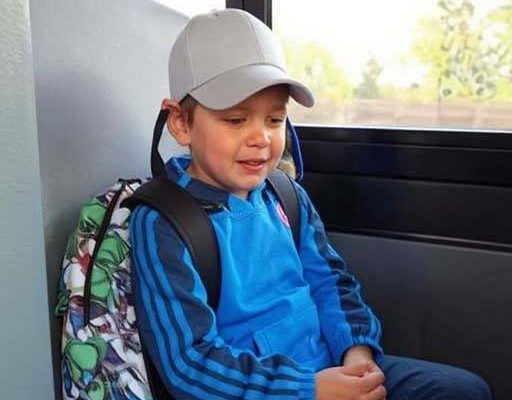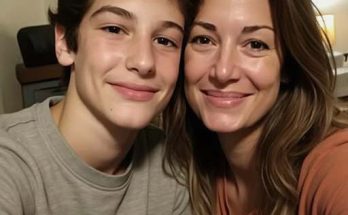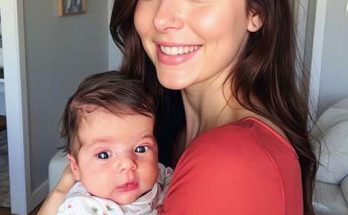Jonah would cheerily wave goodbye to our dog and run out the front door every morning like he was chasing the sun. My son Jonah would run out of the front door like he was chasing the sun, yelling farewell to our dog, waving his green plastic stegosaurus, and running to the bus like it was the biggest adventure of his life every morning.
vid
He was six years old, wide-eyed, full of tales, and had a laugh that made passersby grin. Though brief, the bus journey was his favorite part of the day.
However, something changed.
I missed it at first. Not really. A day without a grin. Quiet “bye” instead of screaming goodbye. Then followed fake stomachaches, “I don’t feel good” mornings, and pleas to stay home “just for today.”
He stopped sleeping well.
He needed the hallway light again.
Pictures ceased.
Jonah, my tiny artist who drew dragons and rocket ships in notebooks, gave me blank pages. Or worse—scribbled, furious, black pages bent and discarded.
I told myself it was a phase. Kids become moody, right?
Parents always know.
Something was odd.
On a cold morning, I took Jonah to the bus stop instead of watching from the porch. I didn’t interrogate him. He and I stood silently holding hands.
When the bus arrived, he grabbed his bag straps so tightly his knuckles turned white. His toy dinosaur appeared from his pocket to soothe him.
“You’ve got this,” I murmured.
He nodded briefly, eyes downcast, and boarded the bus.
It was then I noticed it.
He approached the front, but a middle-sitting youngster spoke to another. I didn’t have to hear the words. People laughed. A grin. A finger pointing toward Jonah. A girl across the aisle pushed his shoulder.
Jonah pulled his hoodie over his head and faced the window. He wiped his face with his sleeve.
He wept.
My heart burst.
A thing occurred. Everything changed.
Bus didn’t leave.
Ms. Renee, who had driven our neighborhood route for years, sat with one hand on the driving wheel. Her other hand stretched back. Not furiously. Not urgent. Just peacefully. Like she has done it a thousand times.
She did not speak.
She just extended her hand into the aisle.
Jonah regarded her. Hesitated.
He then grasped her hand.
They sat there quite a while. No words. He was held firmly by her hand.
The bus eventually took off down the street.
The bus stopped as usual that afternoon. However, Ms. Renee did not wave from the window as usual.
She stopped, switched off the engine, and got out of the driver’s seat.
She went directly to the waiting parents—including me—and cleared her throat.
“I need to say something,” she continued, forceful yet even.
Some parents appeared lost. Some looked at each other bemused.
She was unblinking.
“Some of your children are hurting others,” she added. This is no joke. Not ‘just teasing.’ It’s not ‘boys being boys’ or ‘kids being kids.’ Bullying. Intimidating. Targeting. This must end.”
Air became heavy. You could hear tree birds.
She stared at me. For three weeks, your youngster has shrunk into his seat. I saw him trip in the aisle. He was nicknamed ‘weird,’ ‘baby,’ and ‘crybaby.’ I saw his confidence drop. No one spoke.”
I was gut-punched by guilt. Not seen it. Clearly not. Not enough.
RENEE straightened her shoulders. We solve this now. Not tomorrow. Not when convenient. Today. Or I name names. Believe me—I know them all.”
She hopped on her bus like it was Tuesday again.
For us? It wasn’t.
That night, I seated Jonah at the kitchen table and softly said, “Can you tell me what’s been going on?”
I paid attention this time.
He described the girl who labeled him a kid for liking dinosaurs. A youngster who threw his hat out the window. About how they mocked at his drawings and called his rocket ships “toilet paper tubes.”
He quit sketching because “if no one liked it, what was the point?”
I tried not to weep in front of him. Later, I cried in the hallway as he slept.
The following morning, I contacted school.
Thankfully, they took it seriously. There were meetings. There were calls. Excuses were made. Principal attended bus stop. The policies were reviewed.
And Renee?
She continued.
Jonah became her “bus buddy.” Put him in the first row beside her. Handmade “VIP” sign she laminated and hung on the wall. Told students it was “reserved for brave explorers and creative thinkers.”
The other youngsters stopped teasing him.
They questioned his photos.
Two weeks later, he was at the dining room table with his colorful markers, tongue out in concentration. A spacecraft speeding through a galaxy of stars was his drawing.
The cockpit had a cheerful bus driver in a cape navigating space.
In the seat behind her? The youngster with the green dinosaur on his lap.
Weeks passed. Spring came.
I saw Jonah talking to a nervous-looking youngster with enormous spectacles and a lunchbox that matched his sneakers at the bus stop one morning.
Jonah softly remarked, “Hey. Come sit with me. I have the finest seat.”
Together, they boarded.
I wrote Renee that afternoon. A handwritten letter, not an email. I thanked her. How much her simple compassion meant to my kid. I was touched by her strength.
She dropped a smiley-faced message in our mailbox a few days later.
It said:
“People underestimate backpack weight.
Especially while carrying more than books.”
I keep the letter in my wallet.
Because sometimes the slightest act—a hand stretched back without a word—changes a tale.
That day, she stopped more than the bus.
She broke the quiet.
She seized a moment that may have otherwise passed. altered everything.



